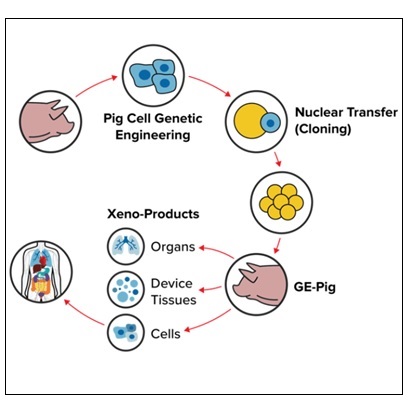Recently, the first recipient of a modified pig kidney transplant passed away around two months after the surgery was carried out.
Xenotransplantation involving the heart was first tried in humans in the 1980s.

|
Genetic editing |
Genetic modification |
|
It involves making precise changes to the DNA of an organism. |
It is also known as genetic engineering, involves altering the genetic material of an organism by adding, deleting, or modifying genes. |
|
Techniques like CRISPR-Cas9, TALENs, and ZFNs are commonly used for this purpose |
Techniques like recombinant DNA technology, where DNA from different sources is combined, are often used. |
|
It uses engineered nucleases to introduce cuts at specific locations in the DNA, these cuts are repaired by cell's natural repair mechanisms, which can result in the insertion, deletion, or replacement of DNA sequences |
It can include the introduction of new genes from other species (transgenic modification), the deletion or silencing of genes, or the modification of existing genes |
|
It specifically refers to precise changes at specific sites in the genome. |
It is a broader term that includes any alteration of genetic material, |
|
It is particularly useful for correcting genetic defects and studying specific genes. |
It is commonly used to introduce new traits from other species. |
References